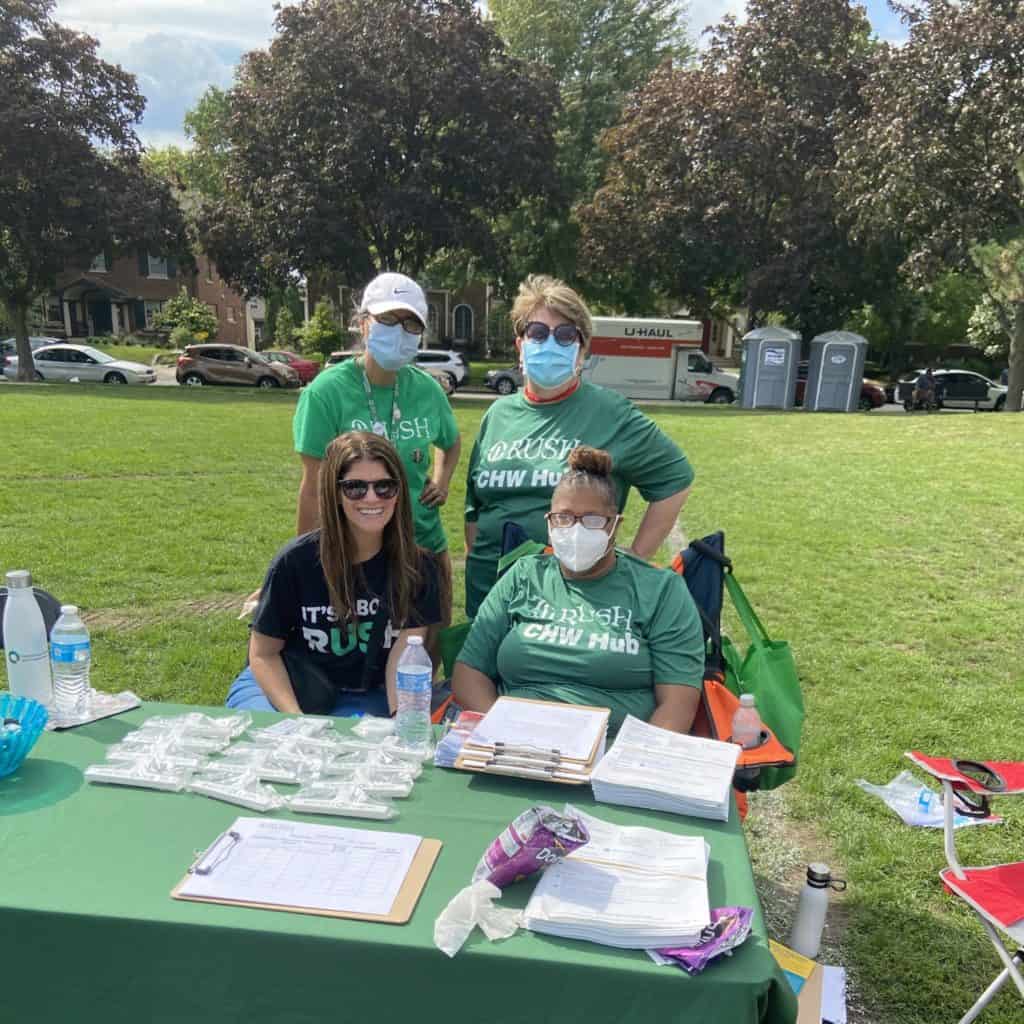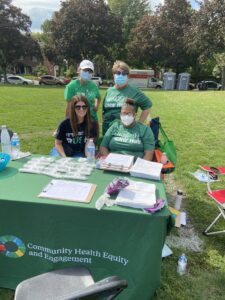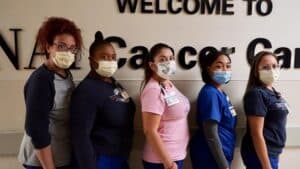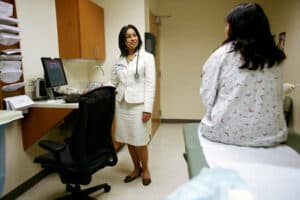Sector Spotlight: Community Health Workers

Prevention and comprehensive treatment are more important than ever after the drastic drop in cancer screenings during the height of the COVID-19 pandemic. It is estimated that over 9 million patients missed screenings in 2020, leading to postponed diagnoses and more cancer deaths.1 Additionally, a recent, nationwide analysis released by the NYU School of Medicine shows that Chicago has the largest life expectancy gap across neighborhoods at 30.1 years, with an emphasis on the South and West sides.2 As healthcare institutions at the federal, state, and local levels are striving to close the COVID-induced cancer screening and life expectancy gaps, The Coleman Foundation provided grants this quarter to Rush University Medical Center (Rush) and Sinai Health System (Sinai). The grants will support our longtime partners’ efforts to bridge these care gaps in the South and West Sides through Community Health Workers (CHWs). CHWs are trusted members of the neighborhoods they serve who act as frontline liaisons, connecting patients to health/social service providers, improving both the quality and cultural competence of care.3
Because patients in underserved populations encounter significant barriers to care well before they receive formal cancer diagnoses, the Cancer Center at Rush has collaborated with its CHW Hub to expand the role of CHWs, embedding them into oncology care early on so they can help break down these obstacles. CHWs provide patients with hands-on, individual assistance to help them navigate the system, enroll for benefits, get additional imaging/testing and take advantage of other community resources. Dr. Teresa L. Deshields, Director of Supportive Oncology at the Cancer Center, considers CHWs an integral part of care, saying “CHWs have been at Rush for a bit and were so helpful during the pandemic. We recently began using CHWs in the Cancer Center to follow up on social determinants of health screening and distress screening, as well as for cultural navigation. Coleman’s support will deepen the impact by positioning CHWs to also lead cancer screening, education and risk factor management out in the community.”
Similarly, Sinai launched their Supportive Oncology Program in 2017 to improve coordination of care between communities and clinical services and ensure individualized treatment for each patient. The Supportive Oncology program also recognizes the important role that CHWs can play in improving patient outcomes and is adding more CHWs to their multidisciplinary team to provide comprehensive, quality care to patients, including education, palliative care, and screening for psychosocial distress and social service needs. Sinai’s Oncology program serves 500 patients per month with 40% identifying as Latinx and 50% identifying as African American. About 80% of the African American group has a Stage IV diagnosis. Most of these patients are initially diagnosed during hospitalization or an ER visit, suggesting that they do not have access to screenings or preventative care. According to Dr. Pam Khosla, Sinai’s Chief of Hematology and Oncology, “Delay in screening leads to advanced stage cancers, which may become incurable and or need much more therapy…than would be needed for early cancer, which can generally be cured with surgery alone. Integrating the CHWs…showed some very encouraging short term positive outcomes…in spite of the COVID epidemic still leaving some major delays and disruptions in care.” More specifically, utilizing CHWs in a clinical oncology setting can lead to improvements in no-show rates, reduce preventable ER visits, and increase connection to care and patient satisfaction.
Coleman recognizes the timely opportunity to invest in organizations that address the cancer screening and life expectancy gaps in Chicago and look forward to collaborating with its partners to support innovative work that ensures equitable health outcomes for underserved communities.
Sources
- Working to Close the Cancer Screening Gap Caused by COVID. National Cancer Institute. (2022, May 17). Retrieved October 17, 2022, from https://www.cancer.gov/news-events/cancer-currents-blog/2022/covid-increasing-cancer-screening.
- Large Life Expectancy Gaps in U.S. Cities Linked to Racial & Ethnic Segregation by Neighborhood. NYU Langone Health. (2019, June 5). Retrieved October 25, from https://nyulangone.org/news/large-life-expectancy-gaps-us-cities-linked-racial-ethnic-segregation-neighborhood.
- Community Health Workers. American Public Health Association. Retrieved October 17, 2022, from https://www.apha.org/apha-communities/member-sections/community-health-workers.




